- News
- Reviews
- Bikes
- Accessories
- Accessories - misc
- Computer mounts
- Bags
- Bar ends
- Bike bags & cases
- Bottle cages
- Bottles
- Cameras
- Car racks
- Child seats
- Computers
- Glasses
- GPS units
- Helmets
- Lights - front
- Lights - rear
- Lights - sets
- Locks
- Mirrors
- Mudguards
- Racks
- Pumps & CO2 inflators
- Puncture kits
- Reflectives
- Smart watches
- Stands and racks
- Trailers
- Clothing
- Components
- Bar tape & grips
- Bottom brackets
- Brake & gear cables
- Brake & STI levers
- Brake pads & spares
- Brakes
- Cassettes & freewheels
- Chains
- Chainsets & chainrings
- Derailleurs - front
- Derailleurs - rear
- Forks
- Gear levers & shifters
- Groupsets
- Handlebars & extensions
- Headsets
- Hubs
- Inner tubes
- Pedals
- Quick releases & skewers
- Saddles
- Seatposts
- Stems
- Wheels
- Tyres
- Health, fitness and nutrition
- Tools and workshop
- Miscellaneous
- Buyers Guides
- Features
- Forum
- Recommends
- Podcast
feature
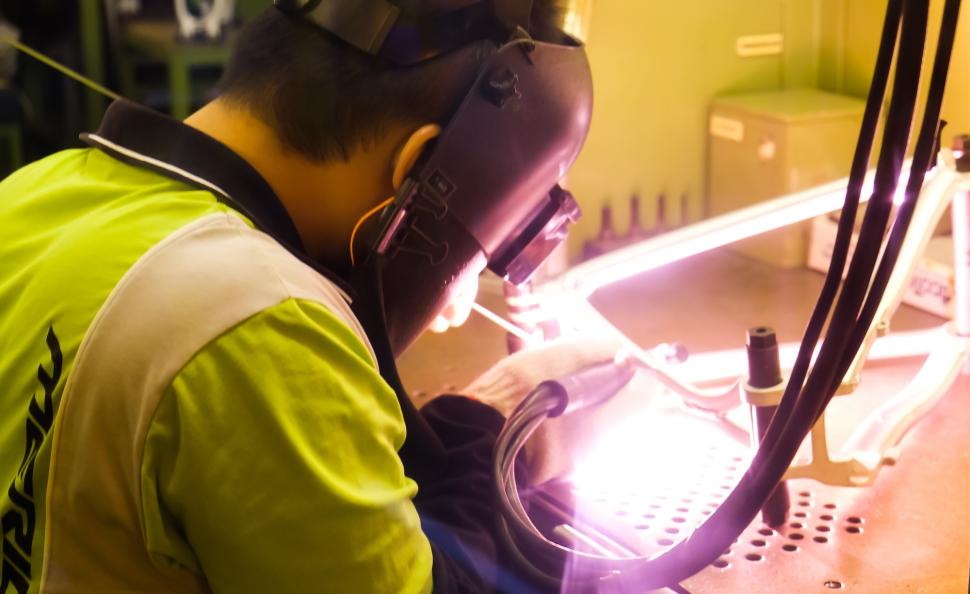 2024 Taiwan bike industry (credit Steve Thomas)
2024 Taiwan bike industry (credit Steve Thomas)Go East! Find out how Taiwan became the hub of the bike industry
When you head out on a ride, the chances are that your bike and/or at least some of the components you put your trust in were made in Taiwan – even if the brand is European or North American. The island rules the mid-to-high-end bike and parts manufacturing world, which is why a massive chunk of the global bike industry spent last week at the Taipei Cycle show. How come Taiwan so important to the cycling world?
Taiwan is a complex, well-ordered, productive, and stunning island with a long and rough history of occupation. It’s also a nation whose independence is disputed, claimed as a province of the People’s Republic of China (PRC) by PRC itself, but declared an independent nation already by Taiwan’s own administration.
Long ago, or perhaps even in the late 1980s if you listened to the Pet Shop Boys, “Go West” was a mantra for opportunity for many fortune seekers, and they didn’t mean Aberystwyth when they said that. It was all about the opportunity and treasures awaiting along the gold-paved roads, and trails yet to be carved out through the bold new world. Many still head for the USA in search of those gold-digging dreams of old, although the odds for prospectors heading west are a little different these days.
Somewhat ironically, going east has been the path for modern-day fortune seekers, and when it comes to Taiwan that often means bikes and microchips. In one form or another, outsourcing is nothing new, although as far as both the British and global bike industries are concerned, outsourcing their bike and part-making really started to take hold in the 1970s, and with the ever-increasing consumer demands for cheaper products and commercial in-tussles, it’s understandable why it happened.
During the 1970s and 80s, many of the major bike makers around the world, such as Raleigh and Schwinn, had wound down much of their home-grown production. Early on in the outsourcing revolution, these brands were largely relying on the evolving Japanese makers to build their bikes and parts.
As bike-building excellence was honed, these Japanese manufacturers in turn moved their production to Taiwan and elsewhere in search of even lower rates. By exporting their management and manufacturing expertise to Taiwan, the island soon became an affordable and reliable hub for the bike manufacturing industry.
Taiwanese companies and entrepreneurs soon figured out that they could do as good a job for themselves and could cut out the middlemen. Companies such as Giant rose to prominence early in the Taiwanese outsourcing game, primarily as OEM (original equipment manufacturer) suppliers to the major western bike brands.
With their ever-improving technical excellence, these companies progressed rapidly in both capability and in their own economic terms, and some also struck out on their own in tandem with their OEM productions – and stand-alone brands such as Giant and then later Merida emerged.
Even so, many of the Taiwanese OEM makers are smaller concerns that either do not make products under their own name, or only do so in certain smaller market sectors around the world – to avoid clashes of interest.
During the 1980s and 90s, many western bike industry entrepreneurs went directly to Taiwan and set up manufacturing companies and partnerships there, and others simply visited the Taipei Cycle Show and chose off-the-shelf products to be re-branded and sold on. Many of these brands were very familiar globally back then, and the mountain bike boom fuelled that trend even more.
These days, that opportunism rarely happens, as standards and expectations within the industry and from consumers are much higher than before, and strict order and agreement are the norm nowadays when dealing with most OEM manufacturers.
The current process usually involves either having a dedicated team or designer for each brand, or a resident or visiting envoy from those brands, which ensures that quality control and confidentiality are prioritised.
Having been in countless manufacturing facilities in Taiwan over the years, I can say that it’s quite an eye-opening experience. It’s not unusual to go into some bizarrely named factory and see several of the major high-end bike brands having their long-established and credible names and designs built up, and to find the same happening in the major own brand factories, those of the biggest Taiwanese brands. This makes perfect sense, as many OEM makers are known for excellence in a specific field of manufacturing.
Make no mistake about it, these companies are very much at the forefront of bike manufacturing. This has led to the Taiwanese industry now leading the premium end of the market.
The result is that many of these companies, and those brands that they supply, have since sought other outsourcing facilities or set up related companies in other lower-cost manufacturing arenas. Many have switched a lot of the more mundane and lower-end production to factories in mainland China, Vietnam, Indonesia, and elsewhere – an ironic cycle that seems unstoppable.
Thrown into the mix are the ever-changing and confusing cross-border duties and regulations that need to be navigated, which can mean parts coming from one country, frames being painted in another, and bikes assembled elsewhere.
How has this impacted the British bike industry?
The pandemic, border closures, shipping channel woes and wars have had a huge impact on us all, even if the reasons aren’t always as clear as a nun’s conscience.
First up were supply chain issues faced by the whole world during and after the pandemic. This lengthy chain can prove a huge problem when it cracks, as we all rely on global trading.
Every nut and bolt on your bike, the rubber in your tyres, the bubble wrap and cardboard boxes – they often come from different places, and sometimes different countries. When you can’t get all of the right ingredients, things get messy.
Then there are similar issues in getting products to suppliers and retailers, something that was grossly restricted or closed off during the pandemic, meaning that the short-lived bike boom induced by the pandemic led to a global shortage.
The bike industry is huge these days, with many of the major brands being massive marketing companies, which is a far cry from the way things were 30 years ago. When it comes to dictating which manufacturers get supply priority, well, you can imagine that there is a commercial pecking order.
The hedged bets on ordering bikes during that boom – something that we have never seen before – and the delayed orders left many brands with a lot of goods to sell in a very troubling economic time for the world.
Crystal balls and homebrewed
However you juggle your crystal ball, there is no real telling where things will go with the bike industry in the near future. It’s pure guesswork. Few of us saw the pandemic coming, and even fewer could have imagined what would follow. In terms of the bike industry, the biggest players have weathered the storm best, which is not a surprise, but it’s unfortunate for smaller brands.
Many industries have turned to finding their supply chains closer to home. Although that is possible to an extent within certain sectors of the bike industry, it is a long game, and one that some brands will be unable to hold out for.
Bring back British and local manufacturing? Yes, that is one possible answer, and companies such as Hope Technology have proven it is still viable, at least in their sector of the market. However, in a marketplace where high-end and cheap bikes alike are stacked high and where competition is rife, would the average customer be prepared to pay a higher price for a product or bike that carries a “made in Britain” badge?
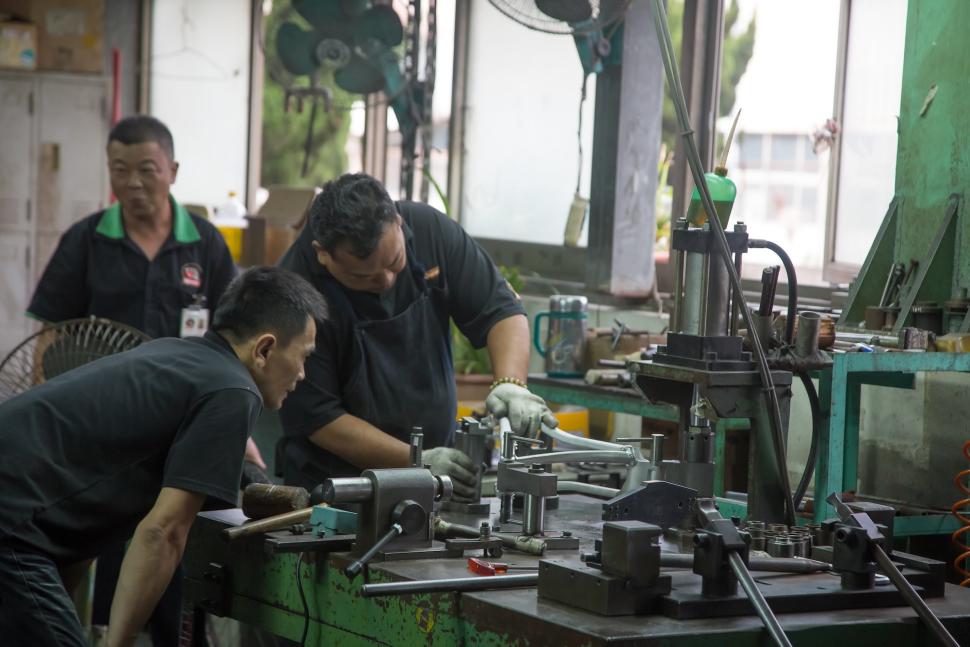
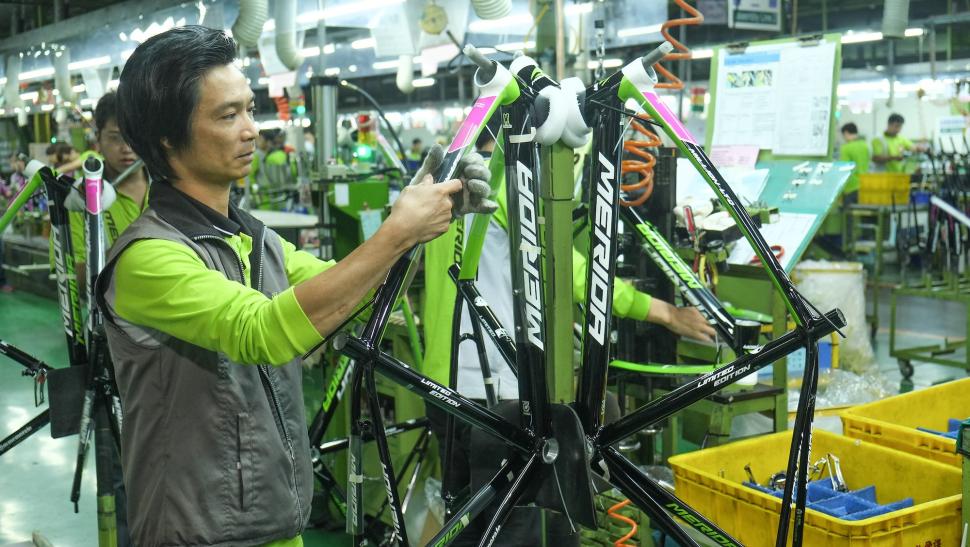
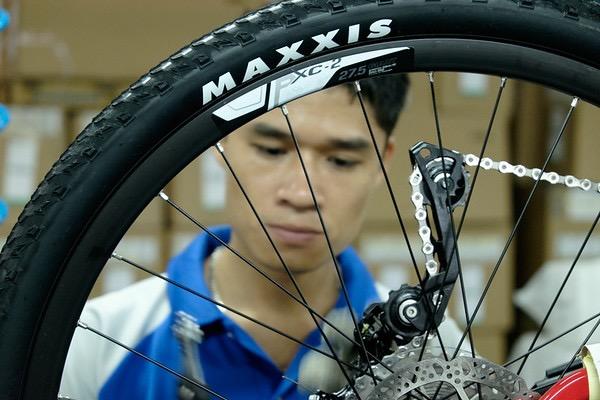
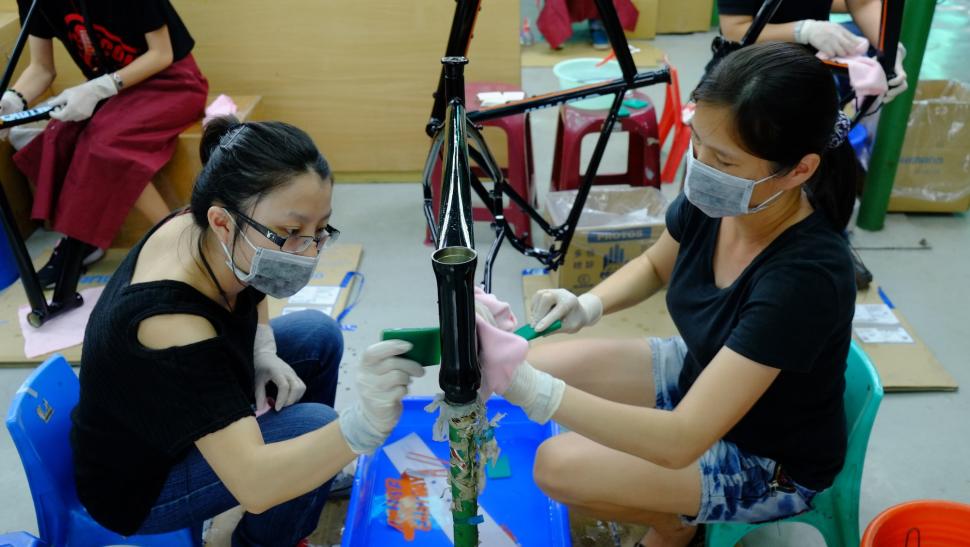
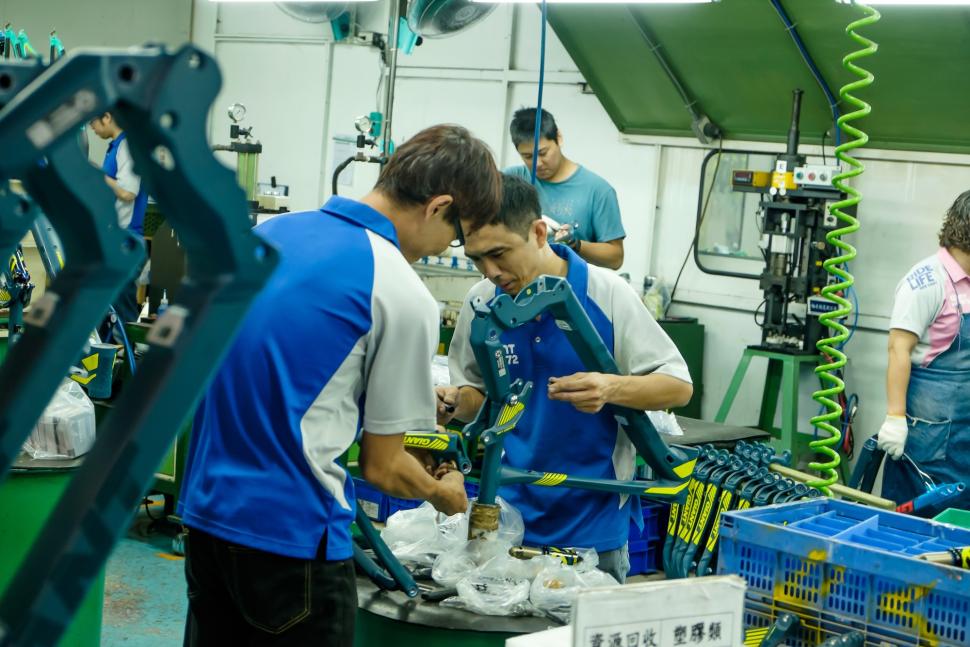
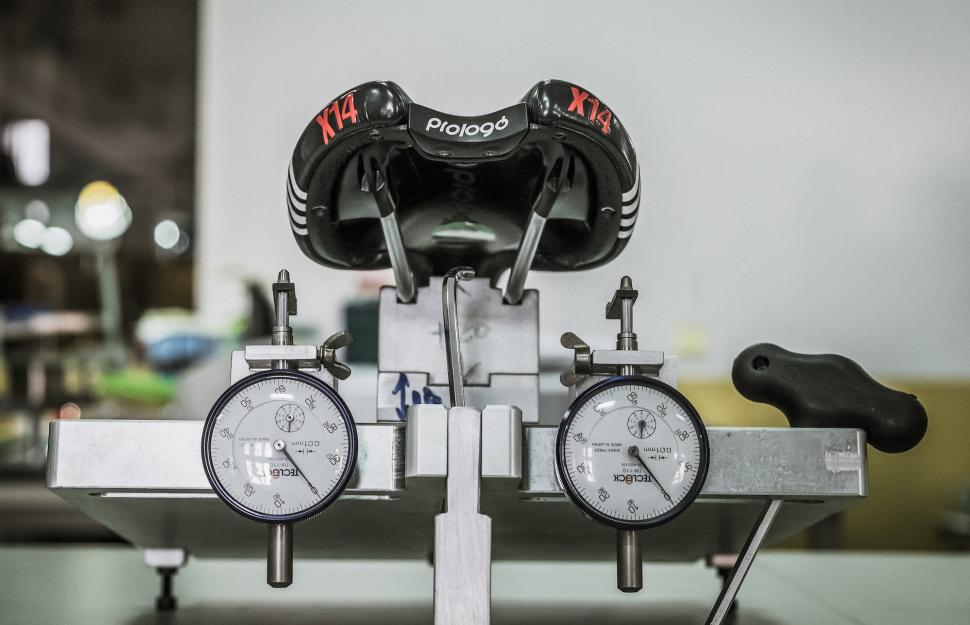
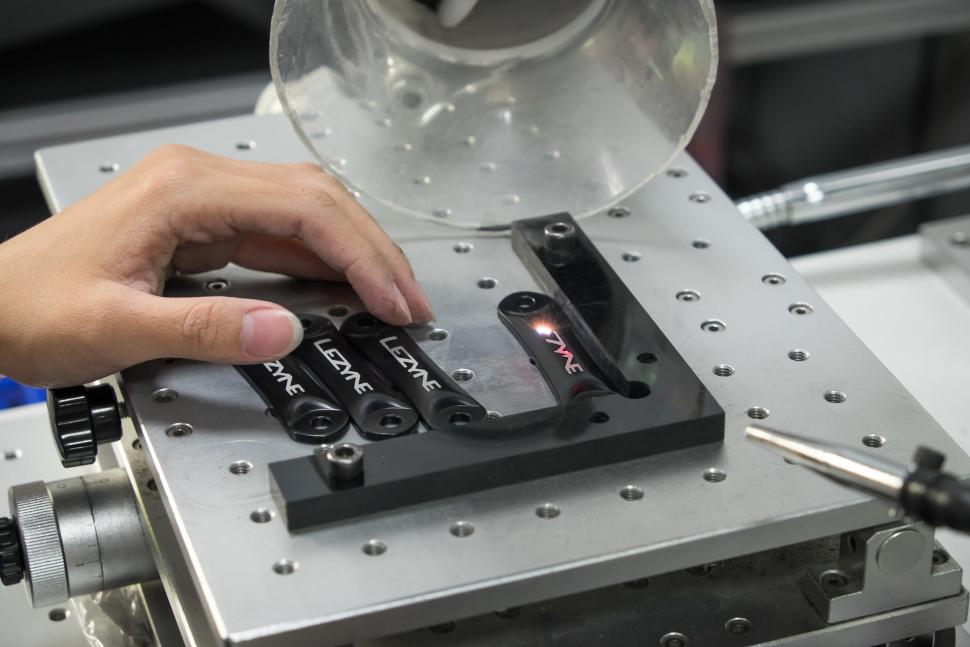

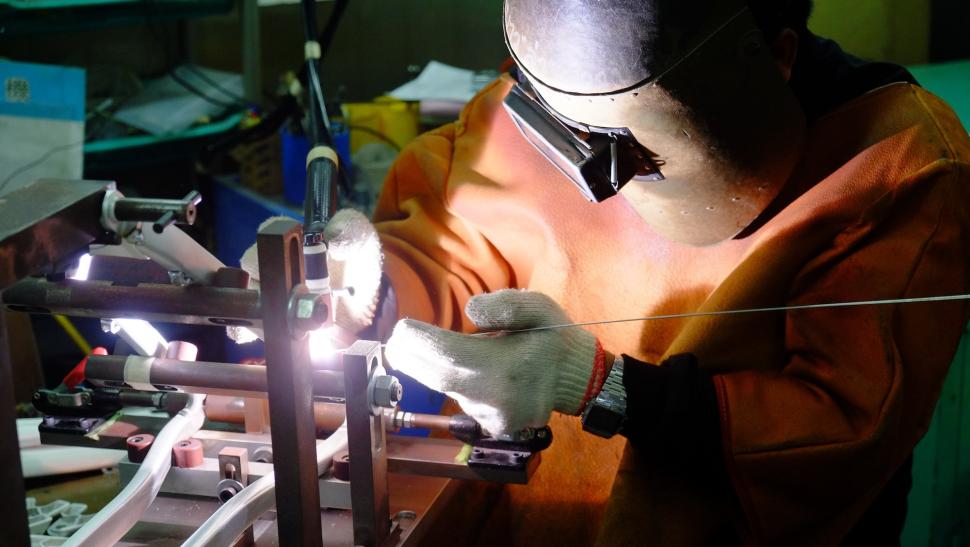
If car=cyclist then why not cyclist=pedestrian and why not pedestrian=cat....
YMMV but when I reported a van who close passed me, whose tax and mot had expired, and it was a Sunday so there were no garages open they were...
A flame thrower dog robot is something every cyclist needs.
Riese and Muller Roadster, quality, comfortable bike. Bosch performance line, belt drive and di2 alfine. I've had one puncture, two hub gear oil...
Probably there are some counterexamples (Health and Safety haven't taken over the asylum yet). However it should make people take notice, if only ...
it used to be, obviously opinions differ. But the stuff they sold a decade ago, absolutely was very good quality stuff, it felt quality too,and...
That's connected via OBD-II so can't access GPS data, therefore won't help with navigation.
Ahh; the usual issue....
Yeah; read Tom Allen's blog for his thoughts on the difference between Touring & Bikepacking......